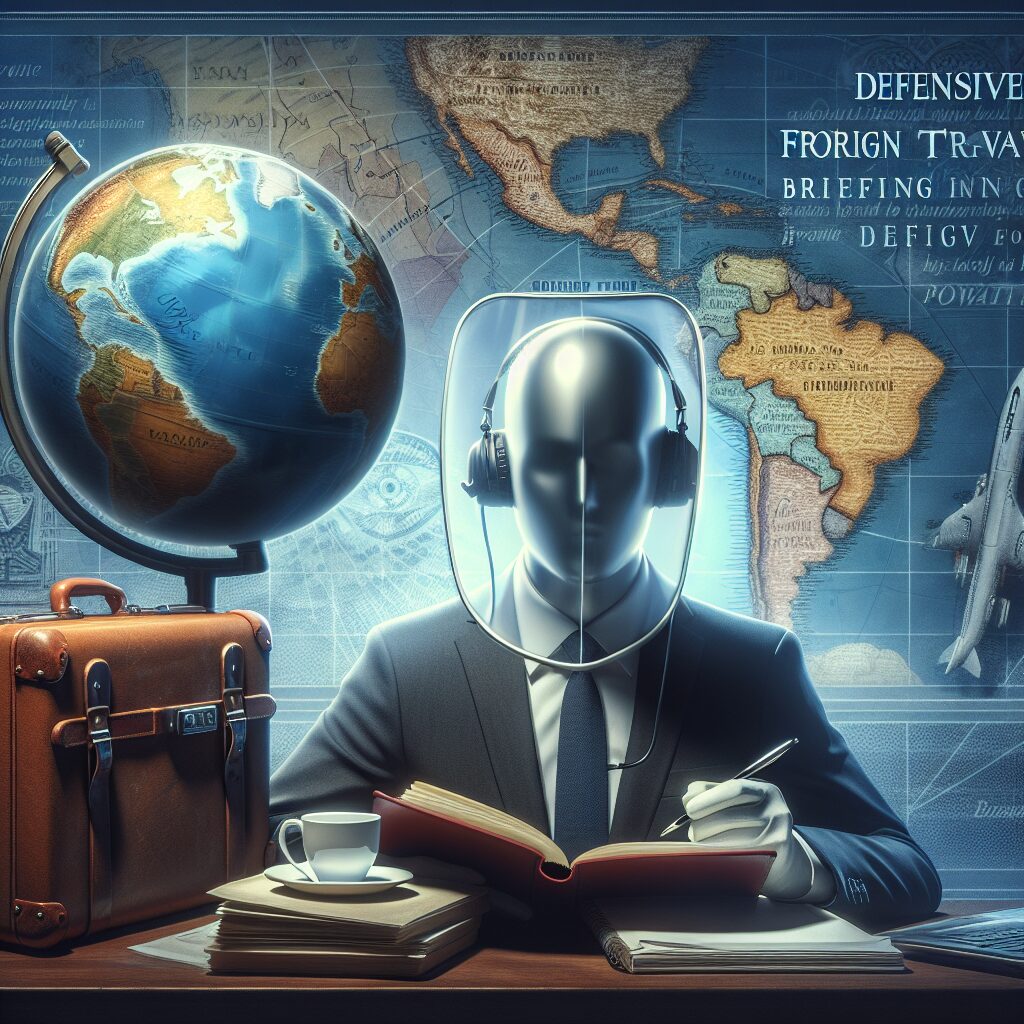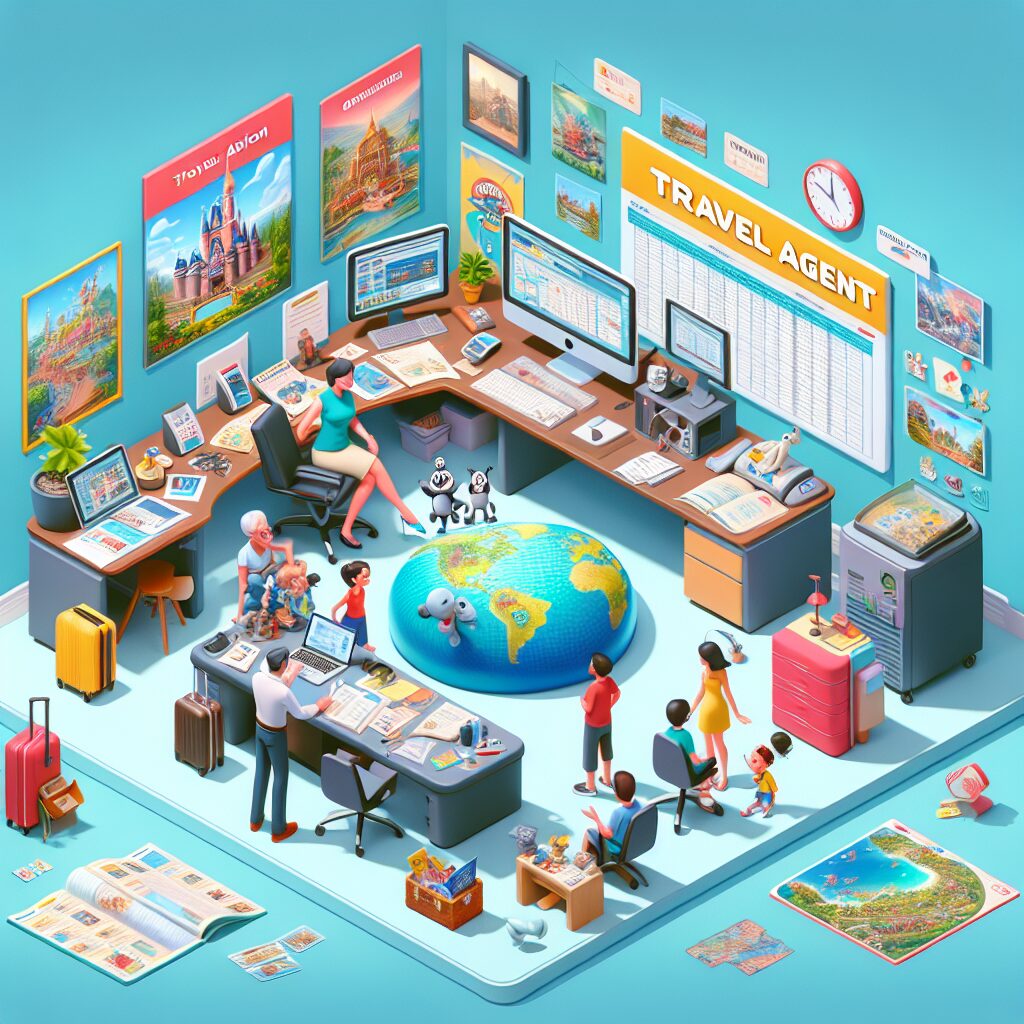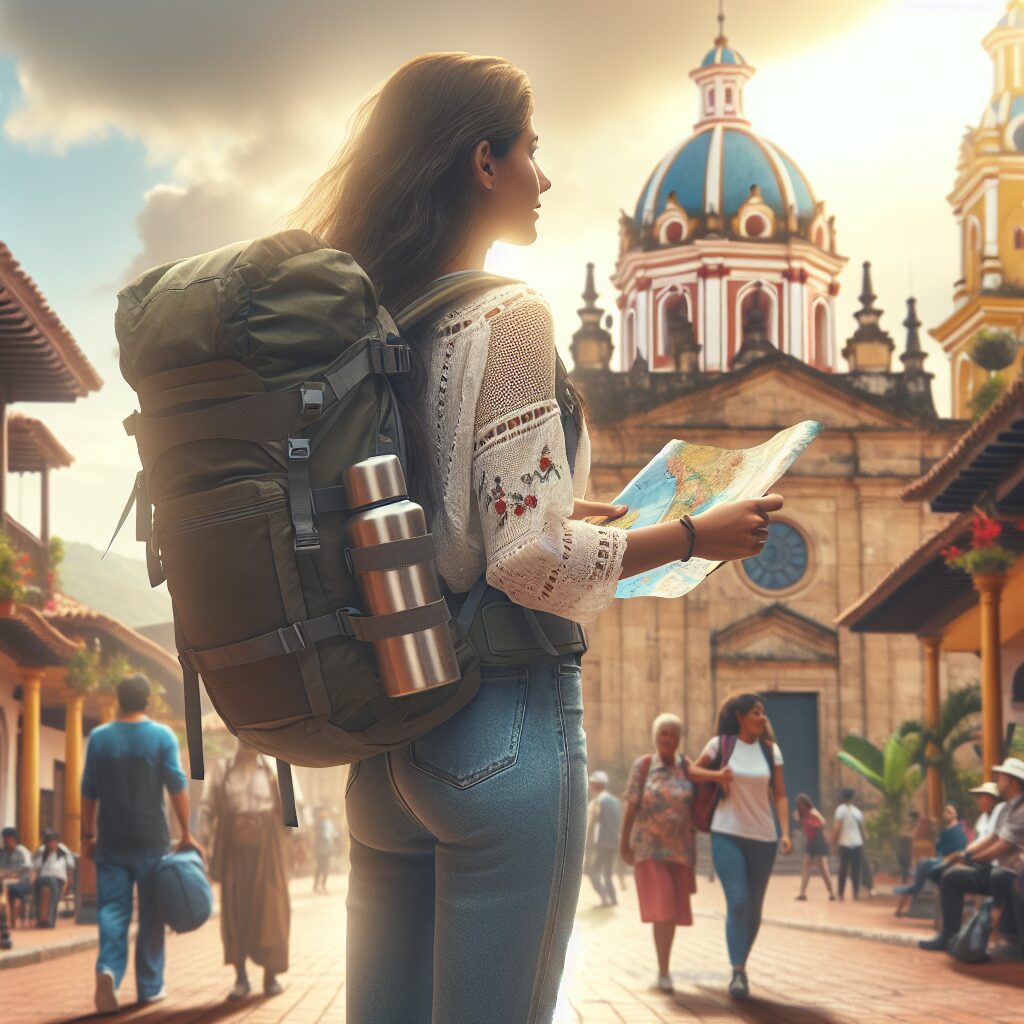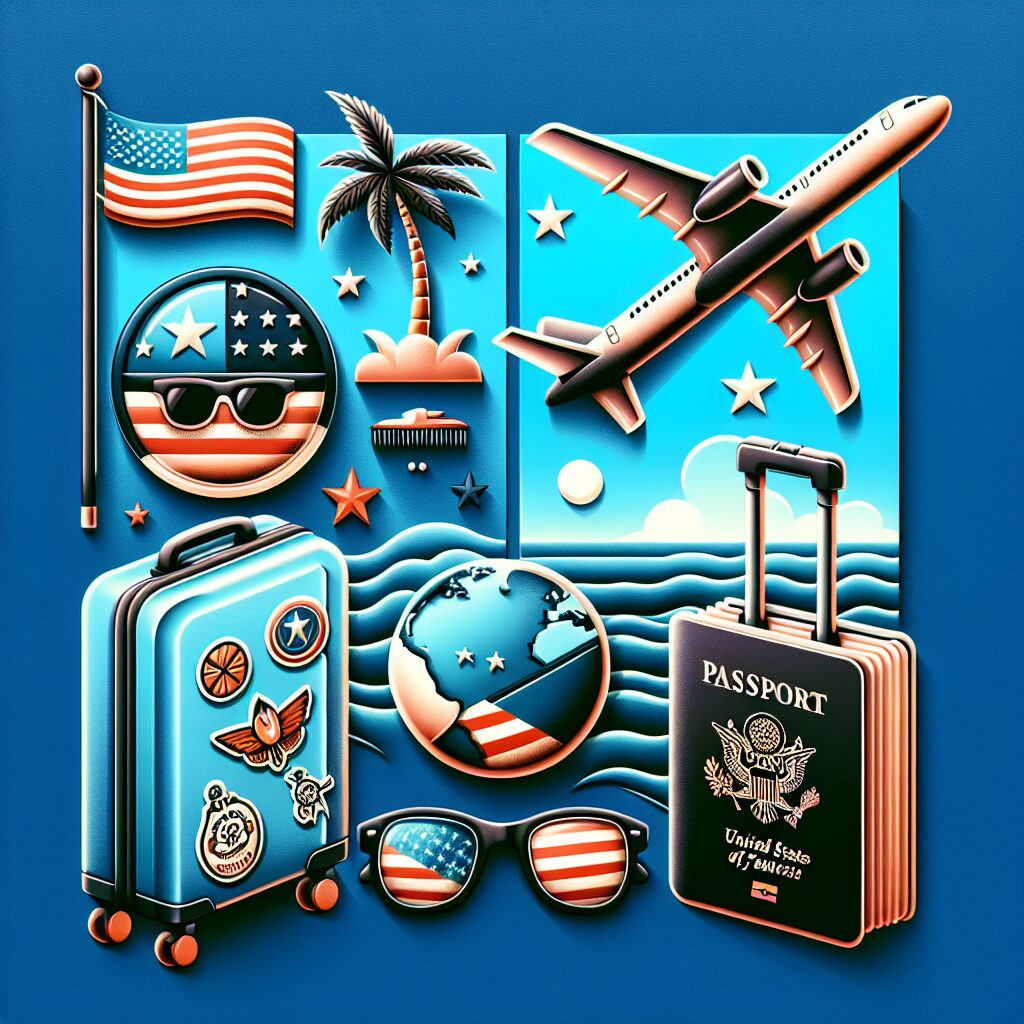A defensive foreign travel briefing is an important tool for people who are going on international trips, especially those that have to do with sensitive government or business activities. These are meant to teach and warn travelers about security risks they might face abroad, such as espionage and cyber surveillance.
Travel briefings don’t just cover the basics; they go into great detail about the social, political, and economic situations in the countries that travelers want to visit, giving them the information they need to stay safe and avoid dangerous situations.
These briefings go beyond regular travel advisories by giving travelers personalized information based on their plans and mission, highlighting the unique risks and challenges each country faces.
In a time when geopolitical tensions can change overnight, international travel is more complicated than ever. Getting a defensive foreign travel briefing on a regular basis is no longer just the law; it’s the safest thing for you and your organization.
Getting up-to-date briefings on a regular basis can make the difference between a mission going well and an unexpected run-in with foreign risks. In the next section of this article, we’ll talk about why it’s important to keep up with these briefings and what the most important things are that can help both new and experienced travelers stay safe as they cross borders.
We’ll talk about the factors that affect how often briefings happen and why staying on top of your travel information isn’t just a good idea—it’s a must for the smart traveler.
Important Insights
1. The number of times someone needs to get a defensive foreign travel briefing mostly depends on their job, the purpose of their trip, and their organization. Some government workers, like those who work in national security or intelligence, may have to go through briefings before every international trip. The briefing is necessary because of the security risks at the destination, the sensitive nature of the traveler’s job, and the chance that foreign intelligence will be after them.
2. Rules and regulations that have been updated should be looked over often because they can change over time. Organizations frequently alter protocols to keep up with evolving global security threats. Employees should check with their company’s security office to see what the current requirements are for a foreign travel briefing. If they don’t, they could be punished or put personal and national security at risk.
3. Defensive foreign travel briefings usually cover a lot of ground, such as how to handle sensitive information, preventative measures for personal safety, and how to stay safe while traveling. These briefings are designed to teach and prepare travelers for possible dangers they may face abroad and to make sure that sensitive or secret information is kept safe.
4. The requirements for foreign travel briefings are even stricter for people with security clearances or access to sensitive information. People often need to get permission before they travel, and they have to explain the reason for the trip, the schedule, and the people they will be meeting. The goal is to look at the risks and give advice or suggestions for how to deal with possible security threats.
5. Some people may also need to go through debriefings after their trip when they get back. During these sessions, travelers talk about any strange people they met or things that happened to them while they were traveling. This information is very important for finding out if foreign intelligence agencies are trying to get access to sensitive data. It also helps security staff keep risk assessments and briefing materials up-to-date.
Briefings that all government workers and contractors have to attend
People who work for the government or for contractors who want to travel abroad must follow the specific rules set by their agencies for defensive foreign travel briefings. The goal of these briefings is to get people ready for possible security risks they might face while traveling abroad.
Before going to a foreign country, employees should usually check in with their security office to get the latest information. People who travel a lot or who work in jobs that require them to travel a lot may need to do this at least once a year, or more often if the threat level or destinations require it.
Assessment and awareness of threats before travel
Before going on a trip, employees usually have to go through a risk assessment that looks at the current political situation, cultural norms, and any new security threats to the destination. Briefings include talks about being aware of your surroundings, who to call in an emergency, and how to travel safely.
It is very important for travelers to know about the different dangers, like pickpocketing and cyber security risks, and get advice on how to stay safe.
Updates and more briefings for areas with a high risk
People who go to high-risk areas may have to go through more required briefings. People live in these places because they have a lot of crime, unstable governments, or high terrorism risks. In this case, travelers may have to go through briefings before every trip to make sure they have the most up-to-date safety information and tips.
Also, people who are going to these places might need to go through special briefings that are designed to cover the specific risks of the area.
Special Things to Think About for Military and Diplomatic Staff
People in the military and diplomatic service may have to go through extra steps to make sure they get defensive travel briefings. A lot of the time, these briefings go into more depth about espionage, threats to national security, and how to handle classified information while traveling.
How often these briefings happen is often based on how sensitive the person’s job is and how much classified information they have access to.
Agency rules and following them
Each government agency has its own rules for defensive foreign travel briefings, and employees should know what those rules are for their own agency. If you don’t follow the rules, you could be punished or lose your travel privileges.
Travelers should check with their company’s human resources or security department for exact briefing times and rules to follow.
Getting information and resources online
Now that we live in a digital world, some companies may offer online briefings that employees can check at their own pace. These online resources can be updated in real time to show the most up-to-date information and usually give a full rundown of all the safety measures that need to be taken.
People who travel a lot should check their company’s digital platforms often for updates and new information.
What are the most important things to remember from defensive foreign travel briefings?
-
Stay alert and aware of what’s going on around you at all times.
-
Keep emergency contact information close at hand.
-
Remember to keep private data safe and watch out for spying attempts.
-
Check the travel advisories and threat levels for your destination often.
-
To stay in line, make sure you follow all of the agency’s rules and briefing requirements.
-
Update and review what you know before every international trip, even if you’ve been there before.
What is a defensive briefing for traveling abroad?
A defensive foreign travel briefing is a session of information that gives travelers important safety tips, cultural etiquette, and security rules to follow when they are traveling abroad.
Its goal is to get people ready for the risks and dangers they might face in other countries.
What kinds of people need to take a defensive foreign travel briefing?
People working for the government, the military, or contractors who have to go abroad on official business usually have to take a defensive foreign travel briefing.
It is also suggested for individuals or private sector workers who plan to travel abroad, especially to places with a high risk of crime.
How often should you get this briefing before you go on a trip?
How often you get a defensive foreign travel briefing may depend on the rules of your company and the current state of global security.
Usually, you should get briefed before every international trip, or at least once a year if you travel a lot.
Does the location change how often the briefings happen?
Yes, the destination can have a big effect on the frequency. You might have to get briefed more often or in a way that is specific to the situation in the country you are visiting if you are going to a high-risk or unstable area.
Do the briefings change based on what’s going on in the world of security?
Of course. Briefings on defensive foreign travel are regularly updated to include the most recent intelligence and threat assessments. If things happen in global security that change, the briefing will be changed to cover those new worries or risks.
Can you choose not to get a defensive foreign travel briefing?
Most of the time, you shouldn’t choose not to go, and for some groups, it might not be possible at all because the briefing is so important for traveler safety. However, policies can be different, so it’s important to follow what your organization requires.
Is there more than one kind of defensive foreign travel briefing?
Yes, briefings come in different forms. Some are about international travel safety in general, while others are more specific to certain countries, regions, or types of threats, such as health risks, cyber threats, or espionage.
What kinds of things do these briefings usually cover?
Awareness of local laws and customs, personal safety measures, best practices for cybersecurity while abroad, emergency contacts, and planning for what to do in case something goes wrong are some of the things that can be talked about.
What is the length of a defensive foreign travel briefing?
The length of the briefing depends on how hard the trip is going to be and how dangerous the destination is. A briefing might last anywhere from one to several hours.
What is the difference between a briefing for people who work for the government and one for everyone else?
It’s possible for them to be different. Briefings for government workers might include secret information or specific instructions that are important to their job, while briefings for civilians are more likely to be about general safety and security.
Last Thoughts
Defensive foreign travel briefings are very important for making sure that people who are traveling abroad for work or pleasure are safe and ready. If you know about possible threats, cultural differences, and security rules, you can greatly lower the risks of traveling abroad.
Because things are always changing around the world, travelers should actively seek information and follow the advice in these briefings. They should see them as an important part of planning their trip.
The fact that these briefings are updated often shows how important they are in today’s connected world.











